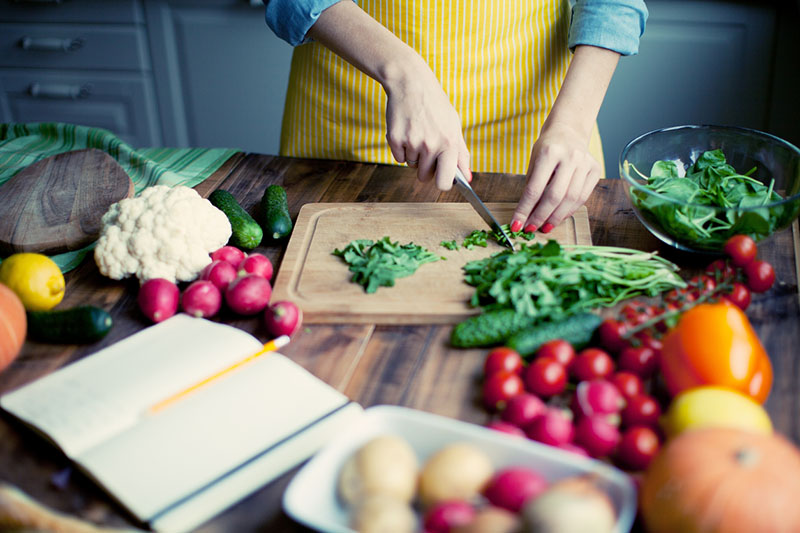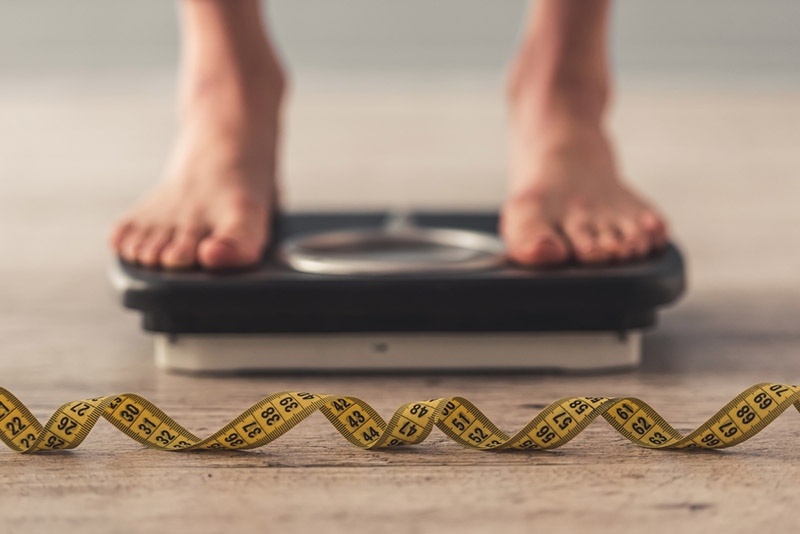[ad_1]
Ever wondered what the best weight loss tips are from a nutritionist? Healthista spoke to expert May Simpkin who reveals her top 12 top nuggets of weight loss wisdom
Losing weight doesn’t have to be difficult or tortuous. It can simply be a case of making small changes to your daily routine that are healthier and more rewarding, inspiring you to continue for longer.
However, the most important factor that will ensure success is consistency. As with all goals, if you are consistent with the changes you initiate, success will follow.
A big part of weight loss is about reducing your portions
Sifting through the endless articles, videos, webinars can be confusing, and worse still lead you to making changes that are might sound easy to initiate but difficult to maintain.
Sustainable weight loss is about changing your behaviour on a day-to-day basis and this is much easier than you may imagine. There is no quick fix but there are a number of tips that I can share with you to incorporate into your daily life that will help you achieve your weight loss goals.
Tip #1 Plan your meals & cook from scratch
If you’re serious about losing weight, you cannot adopt a haphazard approach to your food choices and you will need to put in the effort. With weight loss this must be right from the outset, until you find you are naturally making great choices as your eating habits change.
Planning a few key breakfasts, lunches and evening meals will ensure you have the ingredients on hand when you open your fridge, freezer or larder. It’s very hard to stick with your plans otherwise, particularly if you’re starving or pushed for time, or indeed both!
READ MORE: How to get a flatter stomach in less than 24 hours – the expert’s guide

Tip #2 Eat more vegetables
You’re aiming for seven portions a day, with an absolute minimum of five. This is easy to do if you are considering at least two or three portions for each meal. Plan your meal by starting with which vegetables you are going to include.
Low in calories and high in fibre. They provide the perfect combination for weight loss, while of course also plenty of essential vitamins and minerals. Eating more fibre also helps you feel full, which will help you to avoid overeating and sabotaging your weight loss efforts.
Tip #3 Watch the carbs
Carbohydrates are essentially sugars and although not to be avoided completely, reducing these will encourage the body to resort to providing energy using its stored fat reserves. Limit portions to only one-third of your plate at each meal.
Mealtimes must be respected with healthy meal choices to ensure efficient digestion and avoid overeating
You could also only include complex carbohydrates such as brown rice, sweet potato or butternut squash for two of your meals, and avoid all together for at least one meal.
For example, try a protein rich breakfast of scrambled eggs, spinach, mushrooms and tomato, or spiced shakshuka for a protein rich brunch. A roasted vegetable, feta and cashew nut salad for lunch is also a great choice.
Tip #4 Avoid snacking
Avoiding temptation is much easier if you are already full and not craving sugary foods such as chocolates, biscuits, crisps or fizzy drinks.
This can be achieved by ensuring your meal is planned and well balanced with plenty of vegetables, as well as a good portion of good quality protein like meat, fish chicken, eggs, tofu or quinoa.
Try to avoid keeping junk food in the house. If you have to, keep it all in one place that you never allow yourself to get close to! Recent research now suggests that going for longer gaps without eating helps to keep insulin levels low which in turn helps to release body fat.
Read more about intermittent fasting here.
Tip #5 Drink more
Thirst is often mistaken for hunger and you can end up eating when actually you simply need to re-hydrate. Limit your choices to water and herbal teas only. Don’t forget that soups and smoothies also contribute to your fluid intake and can help to satiate hunger.
Try this healthy french onion soup recipe for a nutritious twist on a classic soup.
Tip #6 Use smaller bowls and plates
A big part of weight loss is about reducing your portions, and using smaller bowls and plates. It’s this simple swap that will help you to eat smaller portions. Psychologically, it appears that you have a good amount of food to eat and that you are not missing out.
READ MORE: 6 ways to hydrate on the move during a heatwave

Tip #7 Restrict alcohol completely
If you’re serious, there’s no way around this. Alcohol contains a high calorie count with zero nutritive value and will negate most of your weight loss efforts. Consider it a temporary measure to help you achieve your weight loss goals.
Still fancy a drink? Check out our pick of low alcoholic beers.
Tip #8 Respond to your body’s signals
Eat when you’re hungry and not necessarily because you feel you ought to, and then only eat the meals you have planned. Do not make a quick grab for something less healthy or graze whilst distracted at your computer, with your phone or watching the TV.
Eating your meal slowly also helps to ensure the meal takes longer
Mealtimes must be respected with healthy meal choices to ensure efficient digestion and avoid overeating. Sit down at a table if possible. If you’re at your desk, take a quick 10 minute break for your meal if your workload is relentless and you’re unable to allow a more relaxed lunch period.
Eating your meal slowly also helps to ensure the meal takes longer, so your brain has a chance to register that you are full. This takes around 20 minutes, allowing this time before you consider a second helping or another course is crucial.
Tip #9 Get active
Increasing your exercise and daily activity is essential for general health and particularly if you are trying to lose weight. Factor in more activity every day, without fail. Joining a gym or working with a personal trainer is certainly an option but not always feasible.
However, making time to go out for a brisk walk alongside some simple resistance exercises at home is more practical, cheaper and easy to plan into your day.
You can invest in some inexpensive weights, bands or simply use some household items as weights. Also, consider exercises such as push-ups, lunges and squats. Building muscle mass will help boost your metabolism and encourage weight loss.
Tip #10 Try to eat your evening meal as early as possible
Not only will this avoid the need to snack, but it also gives yourself a longer period of ‘fasting’ until the morning. Read more about the benefits of intermittent fasting on maysimpkin.com or read May’s guide to fasting for weight loss here.
Tip #11 Stop eating after your evening meal
Once you have finished your evening meal, don’t eat a single thing afterwards. Leave the kitchen, and only return for a herbal tea or water until the morning.
If you’re hungry after your meal, distraction is key – pick up a book, have a bath or call a friend. You’ll find that the cravings will pass and you’ll be able to avoid the temptation to continue eating more easily.
READ MORE: A Mediterranean diet is proven to ease these 5 menopause symptoms

Tip #12 Weigh yourself daily
This advice is often contested but frankly, if your goal is to lose weight, your weight either needs to stay the same or reduce on a daily basis. Weighing yourself daily will establish whether this is the case, and if you have gained a pound or two, this will immediately alert you to give more attention to the points noted above.
Aiming for weight loss and achieving weight loss is the best inspiration, but it is very important that you are realistic with what you expect to see on the scales on a daily basis.
Most days, there will be no change, but over the course of the week, you should aim for one to two pounds loss, depending on how much you have to lose. Generally you may lose more than this when you first start making changes to your diet and lifestyle, and if you have a lot of weight to lose, you can also find your weight loss to be more rapid at the outset.
 May Simpkin is a UK registered practitioner with a Masters Science degree in Personalised Nutrition. She is an experienced clinician, practicing functional medicine from an evidence base, providing the latest research into nutrition.
May Simpkin is a UK registered practitioner with a Masters Science degree in Personalised Nutrition. She is an experienced clinician, practicing functional medicine from an evidence base, providing the latest research into nutrition.
She is bound by the code of ethics in clinical practice and has met the strict criteria required for BANT, the British Association for Applied Nutrition and Nutritional Therapy and the CNHC, Complementary and Natural Healthcare Council, which is the council recommended by the UK Department of Health for complementary and natural healthcare services.
She is also Chair of the Continual Professional Committee at BANT. In addition, she is registered with IFM, The Institute for Functional Medicine and a member of the RSM, The Royal Society of Medicine.
For more information on how to lose weight, nutrient-rich recipes, and ideas visit www.maysimpkin.com or Follow May on Instagram: @maysimpkinnutrition or Twitter @MaySimpkin or Facebook
HEALTHISTA’S ANSWER TO MENOPAUSE; MENOSTART: PRESS PLAY, NOT PAUSE.
The Healthista Menopause Pack is a fully comprehensive online video workshop, led by Dr Dawn Harper; affordable, accessible and covering all aspects of the menopause, for those who need it most.
With expert advice and information from seven credible menopause industry experts, we hope that this online resource will help women navigate common health and wellness changes and challenges they may experience before, after and during the menopause.
Like this article? Sign up to our newsletter to get more articles like this delivered straight to your inbox.
[ad_2]
Source link
